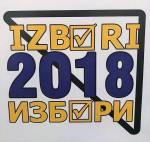
Bosnia-Herzegovina (BiH) is an artificial administrative creature made by foreign powers in Dayton agreement on 1995. It has two political semi-independent entities (federal units) – Serb dominated Republika Srpska (RS) and Federation of Bosnia and Herzegovina (FBiH) inhabited mainly by Croats and Bosniacs. The outcome has been some kind of confederal arrangement set up in Dayton, which provides for an extremely limited central government and broad and virtually unfettered self-government for the RS as well for the FBiH.
General elections were held in Bosnia and Herzegovina (BiH) on 7 October 2018. The general election was seen as an indicator of Bosnia’s future direction: moving toward integration in the European Union and NATO or driven by entrenched rivalries and friction. Pro-Russia Serb leader Milorad Dodik won a race to fill the Serb seat in Bosnia’s three-member presidency, deepening ethnic divisions in the country that faced a brutal war some 25 years ago. Earlier Dodik has prevented Bosnia-Herzegovina from recognizing Kosovo, and opposes joining NATO. After elections Dodik said, that“The will of the people leaves no doubt what they want,” adding that voters “punished” his opponent for his “servile policies toward the West.” Ivanic conceded defeat.
The country – Bosnia and Herzegovina (BiH) – consists of a Serb-run Republika Srpska (RS) entity and a Muslim-Croat entity Federation of Bosnia and Herzegovina (FBiH) with joint institutions in a central government. Voters cast ballots for the three-person Bosnian presidency, the Serb president, and the two entities’ parliaments and cantonal authorities.
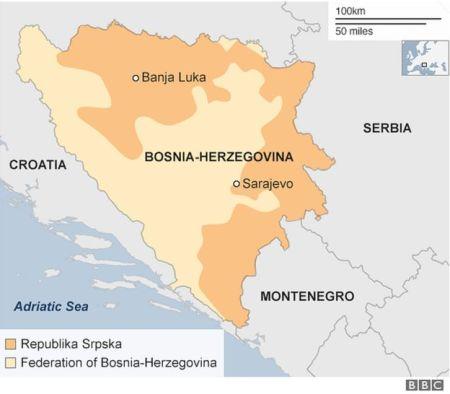
Voters elected the national Presidency and House of Representatives, as well as the Presidents and legislatures of the two entities – Federation of Bosnia and Herzegovina(FBiH) and Republika Srpska (RS) – and the legislatures of the ten cantons of the federation of Bosnia and Herzegovina. The 10 cantons of the Federation of Bosnia and Herzegovina serve as the second-level units of local autonomy and federal units of the of FBiH while the other political entity of BiH, the Republika Srpska (RS), has a centralized government and is divided directly into 63 municipalities. In addition the ethnically diverse Brčko District is a division of its own under the direct jurisdiction of BiH.
A total of 3,352,933 voters were eligible to vote at 5,794 polling stations at home and abroad for some 53 parties, 36 coalitions, and 34 independent candidates that have been confirmed as eligible to run by Bosnia’s Central Election Commission. A total of 3,352,933 citizens were registered to vote: 2,092,336 in the FBiH and 1,260,597 in the RS . Turn out at the level of BiH was 53.36%; FBiH 51.25%; RS 57.30%.
As concerns the BiH Presidency, the preliminary results from 43.42% polling stations indicate that Šefik Džaferović (SDA) won 37.97%, Željko Komšić (DF) won 49.47% and Milorad Dodik (SNSD) won 55.15 % for the Bosniak, Croat and Serb seats in the BiH Presidency respectively. (Source: Wikipedia)
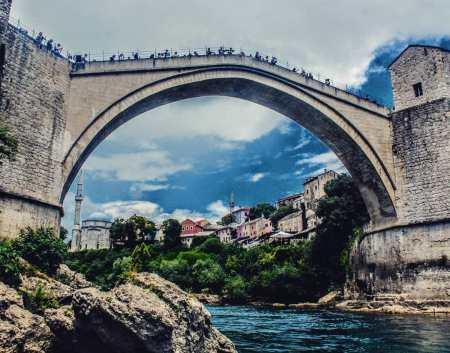
Old Bridge, Mostar, BiH
The outcome
Despite international community’s state building efforts in Bosnia the country is splitting parts; the aim for this artificial creature designed in Dayton agreement was a multi-ethnic state with EU perspective. Bosnia is now even more divided, with less national identity, 20 percent of population living under the poverty line, with a nightmare triple administration plus international supervising making the country one of the worst place in Europe to do business, even as it seeks to join the European Union. The EU has demanded that if Bosnia wishes to join to EU, it must create a stronger central government. Negotiations – led by EU and U.S over constitutional changes to strengthen the central government have been long and unsuccessful.
According Stephen Karganovic during the electoral process some Western political manipulation took place to influence its outcome as credible claims have been made that Republic of Srpska’s main opposition coalition alliance is being funded by the US and UK.. USAID and other outfits tied to the US and British governments were injecting funds into the Republic of Srpska, particularly the media and political groups friendly to their agenda, in order to detach the Republic of Srpska from “malign Russian influence.” As a result, the Republic of Srpska is in the throes of the second round of the color revolution which was originally attempted and failed four years ago at the time of the previous general elections in 2014.
Western minions are being funded and covertly supported because they have agreed to revise the 1995 Dayton agreement and to accept the concept of a unitary Bosnian state that would eliminate or eviscerate the Republic of Srpska. They have also agreed to drop Srpska’s veto to NATO membership for Bosnia. Dodik’s rule has been undermined significantly by the corruption and incompetence of his government. These shortcomings have given the pro-NATO and anti-Russian opposition legitimate issues on which to focus and draw votes that they would otherwise not get based on the flawed fundamental policies that they are hired to advocate. (Source and more about this in article Targeted in the Balkans: Russia’s Tiny Ally Republic of Srpska By Stephen Karganovic)
Bottom line
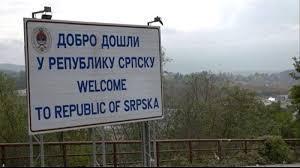 Dodik’s win in elections 2018 will probably mean the restoration of the loose confederal arrangement originally envisaged and agreed upon in Dayton would be regarded by Serbs as satisfactory. Such a system would leave them with an ample degree of self-government in their own virtually independent state. As they could largely ignore the unpalatable government in Sarajevo, and that government would have little effective control over them. For Western powers, NATO and EU the outcome of elections 2018 probably will be there will be a delay of color revolution in the RS. For Bosnia the outcome might be moving from failed state towards dissolution of BiH.
Dodik’s win in elections 2018 will probably mean the restoration of the loose confederal arrangement originally envisaged and agreed upon in Dayton would be regarded by Serbs as satisfactory. Such a system would leave them with an ample degree of self-government in their own virtually independent state. As they could largely ignore the unpalatable government in Sarajevo, and that government would have little effective control over them. For Western powers, NATO and EU the outcome of elections 2018 probably will be there will be a delay of color revolution in the RS. For Bosnia the outcome might be moving from failed state towards dissolution of BiH.
Some earlier articles:
The ‘Bosnian Spring’ Between Chances
Rethinking needed after Bosnian elections
Bosnia on the road to the EU, sorry to Dissolution
Bosnia collapsing?
Srebrenica again – Hoax or Massacre?
Appendix: Some background
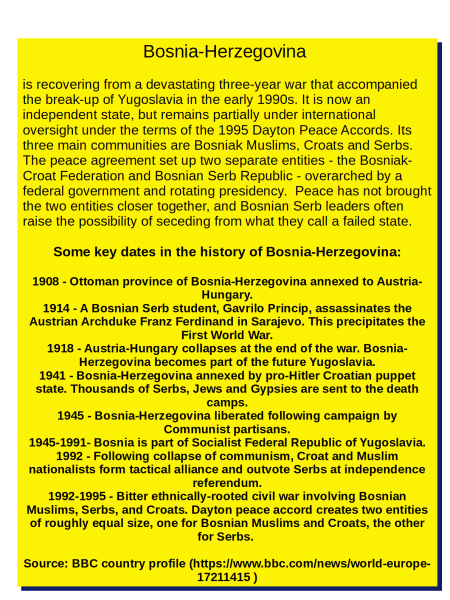
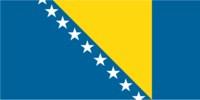
The three points of the triangle represent the nation’s three ethnic groups: Bosniaks, Croats, and Serbs. The triangle itself represents the geographic shape of the nation itself. The colors represent neutrality and peace, whereas the stars represent Europe.
Advertisements
